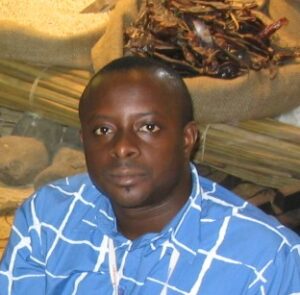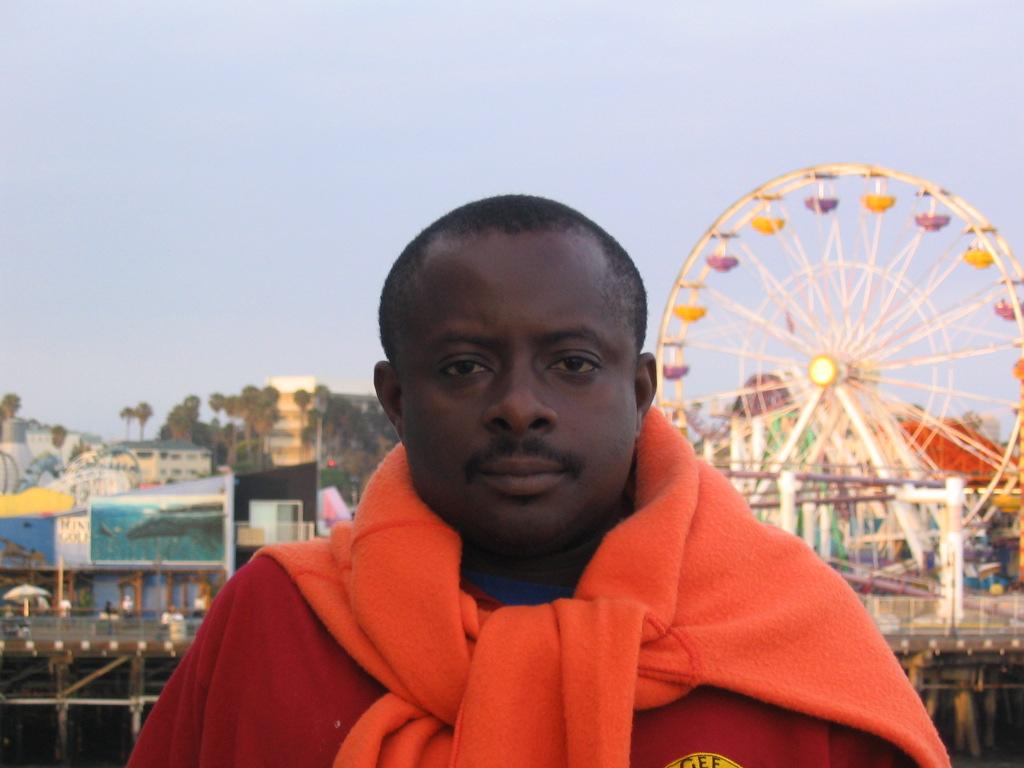Sanmi Falobi, Programme Manager of the International Press Centre, pays tributes to his late elder brother, founding Executive Director of Journalists Against AIDS, Omololu Falobi.
Fifteen years ago (October 5, 2006), yet-to-be-identified assailants cut you short with bullets, strapped to the seat of your car as you drove home, leaving us in shock and anguish. We cried, wept and wailed.
Though your time in life was cut short, you had achieved and affected society well enough as one of the pioneer media advocate on HIV/AIDS issues in Nigeria, Africa and across the globe with your works, vision and passion yielding fruits in many spheres.
The news was that you were shot strapped to the seat belt of your car on your way home around 9.30 pm on Thursday, October 5, 2006.
The assailants are yet unknown; we cried, we wailed and we wept, but you were gone, forced to go while the impact of your works and influence on those you inspired with your insight and capacity are still speaking for you.
It is 15 years after. We still MISS you, but LIFE IS CONTINUING.
We no longer mourn but CELEBRATE you; your wife and children do, the S.O Falobi Family do, your friends and associates do.
Though YOUR LIFE WAS CUT SHORT, YOU LIVE ON… in our hearts.
We have cried and stopped crying for the pain is gone because your impact still speaks.
TO GOD BE THE GLORY!
Sanmi Falobi.
Coordinator, Omololu Falobi Foundation.
6/10/2021.
READ ALSO: Falobi: Journalist, advocate extraordinaire!
Brief work-life profile on OMOLOLU FALOBI.

…………………………………………
Omololu Falobi was former features editor of Punch Newspapers, Nigeria from where he resigned in 2000 to start Journalists Against AIDS (JAAIDS) as Executive Director till Thursday, 5th of October 2006, when he was attacked and shot by armed assailants on his way home.
Born August 19, 1971, Omololu possessed unique and exceptional intellectual brilliance that clearly distinguished him early in life. At the age of fifteen, he got admission into the prestigious University of Ife, now Obafemi Awolowo University, Ile Ife, Osun State, from where he graduated with a B.A in Dramatics Art at the age of nineteen, and a Masters in Political Science from the University of Lagos, UNILAG, years later.
A multiple-awards winning journalist and trainer, he was an accomplisher of note, locally and internationally in his chosen passion of journalism and HIV\AIDS advocacy. In 2000, he won the International AIDS Society’s Young Investigator Award at the 15th International AIDS conference. The same year, he was named the winner of the Highway Africa Award for Innovative Use of New Media, an award that recognizes outstanding and innovative use of the Internet in African journalism. In 2001, he was appointed an Ashoka Fellow, joining an elite group of only 2000 ‘social entrepreneurs’ worldwide recognized for their outstanding and innovative approaches to engineering society’, among other laurels.
Within five years of running JAAIDS, he became a prominent advocate on HIV/AIDS in Africa. In recognition of this, he was selected as the African NGO representative on the board of the Joint United Nations Programme on HIV/AIDS (UNAIDS) for 2004 and 2005. He was also a board member of The Black AIDS Institute (formerly the African American AIDS Policy & Training Institute), Los Angeles, USA; the Nigeria Youth AIDS Programme (NYAP); and the Positive Life Organization (a support group for people living with HIV/AIDS). He also served as media coordinator of the African Union Summit on HIV/AIDS, Tuberculosis and Malaria (2001).
In 2003, he co-founded the Nigeria HIV Vaccine and Microbicides Advocacy Group (NHVMAG), serving as its Co-Coordinator and a strong part of the group’s backbone.
Apart from his activism in HIV/AIDS issues, Omololu Falobi also had a burgeoning interest to mentor young entrepreneurs and enterprises on being socially responsible. One of his desires was to become more involved in developing social enterprise; helping NGO’s to grow their capacities in running and managing their organizations more effectively.
He had contemplated resigning from JAAIDS to begin consulting on institutional development and capacity building, including the use of ICT and new social media for young professionals and institutions.
It was in relation to this desire that he had gone to facilitate at a speaking engagement to young professionals and enterprises that Thursday, October 5, 2006, the day he was attacked and killed by yet unknown armed assailants on his way home, aged 35.

